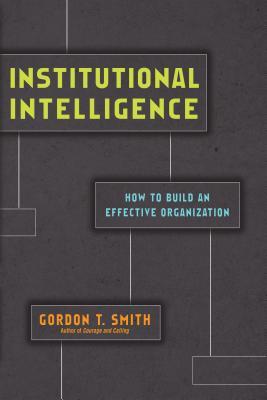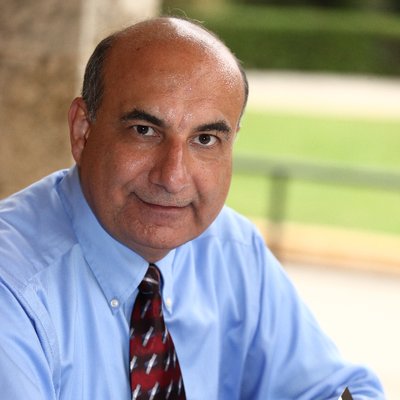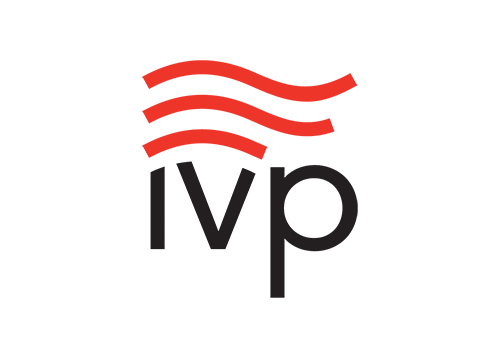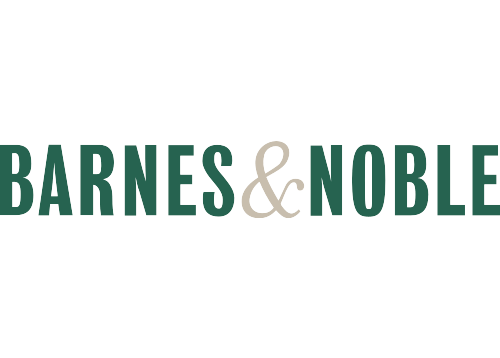

Hardcover, 240 pages
Published July 11th 2017 by IVP Academic
ISBN 0830844856 (ISBN13: 9780830844852)
Institutional Intelligence
How to Build an Effective Organization
Institutions matter. They give us an opportunity to have an influence for the common good that far outlasts us. But we often assume that institutions are at cross-purposes with dynamic communities, with personal vocational calling, and with core human values. We view them somewhat cynically as, perhaps, a necessary evil.
Institutions, far from that, remain essential to human flourishing. They are the very means by which communities thrive, individual vocations are fulfilled, and society is changed for the good. As a result, we all need to learn how to work effectively within institutions.
That is just what Gordon Smith provides. He unpacks the core of institutional intelligence—the wisdom of working effectively within an organization. At the same time, he shows how team leaders, directors, executives, board members, key stakeholders, and employees can avoid what is often their greatest source of stress on the job—working with the institutional character of their organizations.
Focusing on the non-profit sector, Smith unlocks the essential elements of how institutions function in a productive, healthy manner. Church staff, educators, and those in service agencies can all thrive by understanding these dynamics instead of fighting against them. By developing this essential vocational capacity, we and those around us can not only fulfill ourselves but also a mission that is larger than we are.
Available at any of the following.

I’ve known Dr. Smith for over thirty years, and throughout those years he and I shared the ups and downs of our institutional journeys. Evidently institutional intelligence was not always present! I’m thrilled that Dr. Smith has written this book in which he was able to reflect creatively on what constitutes the right building blocks for a healthy institution. In doing so, he amazingly succeeded in weaving in crucial themes from the nonprofit world, connecting them to Christian values and offering down-to-earth insights on how to implement them. The ‘Individual and Group’ exercises at the end of each chapter provide a helpful tool to make this book a workbook. I highly recommend this book to all church, seminary, and nonprofit leaders.
International director, International Council for Evangelical Theological Education, director, Langham Scholars Ministry, Langham Partnership

This book engages one of the most important and yet inadequately addressed changes unfolding all around us: widespread disillusionment with, if not outright rejection of, institutions. And this disillusionment is characteristic of both the larger cultural context and the subcultural context of churches and parachurch organizations. Gordon Smith addresses the challenge head-on with the insight of a theologian, the experience of an organizational leader, and the realistic hopefulness of a thoughtful Christian. Supposed ‘reflective practitioners’ too often disappoint. Smith does not. He provides both richly insightful analysis and constructive, applicable principles and practices with which institutions may thrive. Not just identified ‘leaders,’ but both friends and foes of institutions, along with the people they serve (which is all of us), would do well to learn from this book.
Associate dean, professor of theology and historical studies, Denver Seminary

We can be walking among ruins without realizing it. Our buildings might stand tall, with shimmering glass or towering spires, but the institutions they house are eroding. Whether it’s our cynicism or our fixation on individual ‘authenticity,’ our commitment to institutional maintenance has suffered. And as a result, mission suffers, because institutions are how we channel energies and sustain common work. This is why Gordon Smith’s book is so important. Drawing on rich theoretical insight and years of lived investment in institutions, Smith has written a veritable handbook for the future of faithful work. I can’t imagine anyone who shouldn’t read this.
Professor, author, editor, Comment magazine
 Gordon T. Smith
Gordon T. Smith

